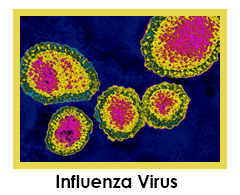Thursday, January 7, 2021 - We’ve seen the devastating effects of a pandemic firsthand: the loss of human life, the economic toll, and the impact on everything from mental health to children’s education. Which is why, as Covid-19 spread, people looked for a way to prevent future outbreaks.
In the US, people started to call for the closure of “wet markets” overseas. Some  research suggested that the many different species living closely together in these markets might have allowed the virus to mutate and jump to humans.
research suggested that the many different species living closely together in these markets might have allowed the virus to mutate and jump to humans.
But Martha Nelson, who studies viruses at the National Institutes of Health, says that if we’re really serious about preventing a future pandemic, we also need to look closer to home.
“I think it’s really easy to think that pandemics come from other places,” she explains, “I think it’s really easy to think that they’re foreign invaders coming from other people who were doing things in a bad way. And I certainly would never underplay the importance of wet markets and all the opportunities for novel pathogens to emerge there. But I think it’s sometimes hard to see things in your own backyard.
Nelson has studied our system of raising pigs closely, and she argues that by moving pigs across the country and raising large numbers of pigs in very close proximity, we’re creating ideal conditions for a dangerous influenza virus to develop. And since she’s also seen how easily pigs can spread novel viruses to humans, she’s even more concerned.
Given the frequency of pig to human transmission, she says, we’re “playing Russian roulette” with our current system of factory farming animals.
Learn more at this link
